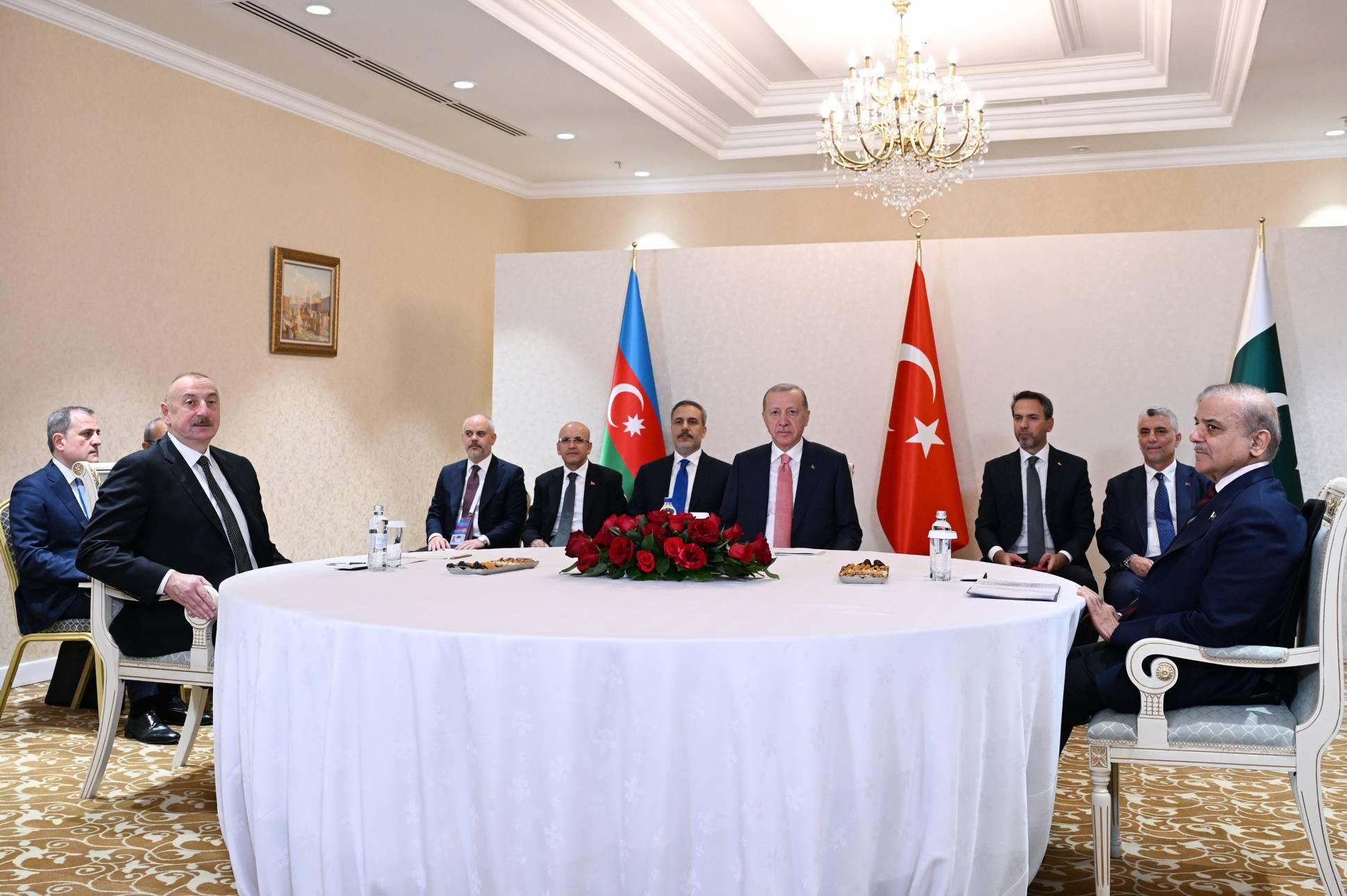Azerbaijan and Türkiye - Pakistan's main geopolitical allies Article by Arab News PK
The Saudi Arabia-based leading English newspaper Arab News Pakistan has published an article by Umar Karim on bilateral relations between Azerbaijan and Pakistan. Caliber.Az reprints the piece.
Editor’s note: Umar Karim is a doctoral researcher at the University of Birmingham. His research focuses on the evolution of Saudi Arabia’s strategic outlook, the Saudi-Iran tussle, conflict in Syria, and the geopolitics of Turkey, Iran and Pakistan.
“Pakistan and Azerbaijan have maintained a unique political and strategic bond since the independence of the South Caucasian country in 1991 after the dissolution of the Soviet Union. Pakistan’s relationship with Azerbaijan veritably has stood the test of time and can be considered the country’s most enduring political engagement among the former Soviet Muslim Republics in wider Central Asia.
With the breakup of the Soviet Union and independence of its Muslim majority republics, Pakistan’s decision-making elite saw a unique opportunity to forge strong political connections with these republics. This region constituted Pakistan’s northwestern neighborhood and it was expected that it would be receptive to Pakistan’s overtures owing to the historical connectivity between Central and South Asian regions and shared religious bonds. However, owing to divergences over the end game in Afghanistan and conflicting geopolitical interests, Pakistan was unable to capitalize on this opportunity and its relationship with most Central Asian states remained dysfunctional. However, within this group of states it was Azerbaijan where Pakistan managed to make a political breakthrough.
Since Azerbaijan had been part of the Caucasus, its geopolitical sensitivities were rather different from its fellow Central Asian states whose relationship with Pakistan was affected by differences on Afghanistan. On the contrary, Pakistan’s foreign policy outlook was totally aligned with Azerbaijan which also had to contend with a hostile neighbour right after its independence when Armenian forces invaded its sovereign region of Karabakh. Alongside Turkiye, the country fully endorsed Azerbaijan’s political stance on the Karabakh issue and provided it diplomatic and political support on every global forum. As a gesture of solidarity with Azerbaijan and to condemn Armenian actions, Pakistan didn’t establish diplomatic ties with Armenia. These goodwill gestures from Pakistan were reciprocated by Azerbaijan by fully supporting the country’s stance on the issue of Kashmir while going against India.

This strong bilateral political commitment from both sides has worked as a formidable bedrock on which the relationship has progressed. Although owing to the geographical distance between the two states, the relationship remained underdeveloped particularly in the economic domain, its fundamentals remained always constant. Similarly, Azerbaijan’s cultural and political differences from Pakistan never had any bearing on bilateral ties.
The bilateral relationship has truly entered the strategic domain after the Azerbaijan-Armenia war of September 2020 which ultimately resulted in the liberation of the Armenian-occupied Karabakh region of Azerbaijan and its southern and western districts. Pakistan provided complete diplomatic and political support to the actions of Azerbaijan to reclaim its territory. Pakistan’s support for Azerbaijan during this conflict was widely appreciated within the Azerbaijani population and perhaps this was the first time the bilateral relationship also moved into the public domain, resulting in Pakistan’s recognition as an important ally not just by the Azerbaijani leadership but also by its people.
Within the security realm, Pakistan and Azerbaijan’s bilateral cooperation has increased. There have been a number of visits by senior defense officials from both countries. Pakistan has been keen to make inroads into the Azerbaijani defense market and has been marketing for some time its indigenously built JF-17 fighter jets to allied states like Azerbaijan. The consecutive visits by the Air Force Chiefs of both countries indicate that both sides are contemplating such a defense agreement. This deal will also further integrate Pakistan’s defense manufacturing complex within Azerbaijani defense architecture. From an Azerbaijani perspective, this will be helpful in diversifying the country’s defense base and to reduce its dependence upon Russia for arms and weapon systems. These developments have also spurred Pakistan’s arch rival India to further its defense cooperation with Armenia and to sell it Indian built weapon systems thus further linking the regional security dynamics within the Caucasus and South Asia.
The recent visit of Azerbaijani President Ilham Aliyev further underscores the growing momentum in bilateral ties and the resolve by both sides to strengthen the cooperation also within the economic, energy and infrastructure sectors and to increase bilateral trade up to $2 billion. Pakistan has been facing chronic economic challenges for over a decade. Azerbaijan being relatively rich thanks to revenues accrued from hydrocarbon exports remains an ideal economic partner for Pakistan and the recent visit by President Aliyev should be seen in this context. Azerbaijan has already agreed to provide Pakistan with Liquified Natural Gas (LNG) and oil on deferred payments.
In addition to the bilateral level, an important development has been the institutionalization of the trilateral relationship between Pakistan, Azerbaijan and Turkiye through a summit of the leaderships of the three countries. The near perfect strategic alignment between the three countries can further incentivize joint ventures in various sectors. From a Pakistani perspective, Azerbaijan and Turkiye perhaps remain now the only two allied states that unconditionally endorse the country’s stance on Kashmir and support its geopolitical outlook in the broader region. Thereby, further advancement of the Pakistan-Azerbaijan relationship should remain a key foreign policy agenda item for all stakeholders within Pakistan,” Karim wrote.








